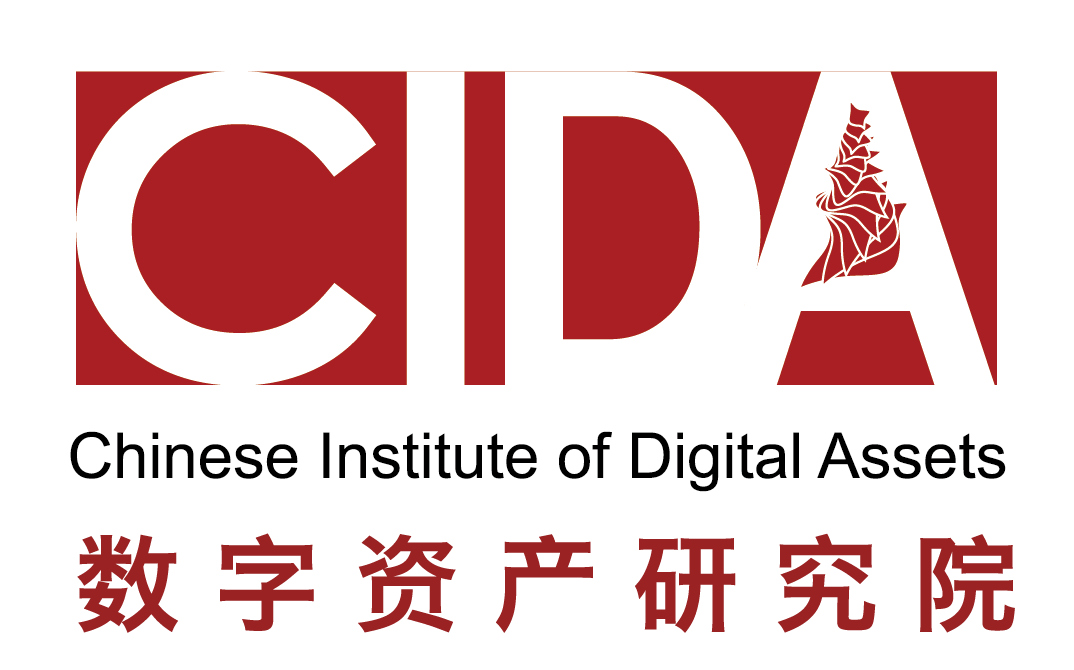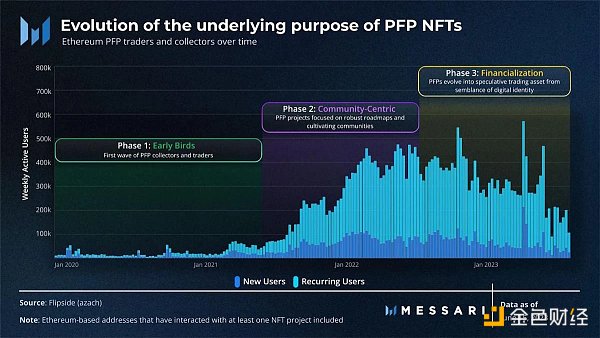Open letter from the Chairman of the Financial Stability Board to the G20 Finance Minister and the Governor of the Central Bank (full text translation)
Guide
On October 13, 2019, the Chairman of the Financial Stability Board (FSB) issued an open letter to the G20 Finance Minister and the Governor of the Central Bank. One of the three topics in the letter is the potential financial stability of the global stable currency. In a letter, the FSB Chairman reiterated the G20 leaders’ view in the Osaka Declaration that “encrypted assets do not currently pose a threat to global finance, but they remain vigilant about existing and emerging risks” and cited the Declaration. Point out the nine challenges of cryptocurrency versus financial stability.
The open letter states that stable currency projects with potential global influence and scale must meet the highest regulatory standards and be subject to prudential supervision and supervision. Priority should be given to assessing and resolving possible regulatory gaps. The G7 Stabilization Coordination Working Group is conducting a preliminary assessment of the opportunities and challenges posed by the Global Stabilization Coin and will hand over the regulatory issues to the FSB. The FSB has set up a working group to form a regulatory policy. The FSB will submit an advisory report to the G20 finance minister and central bank governor in April 2020 and submit a final report in July 2020.
The focus here is: the tone of the open letter does not reflect the explicit opposition of the EU's leading German law to Libra. Regardless of the conclusions of the G7 Stabilization Working Group's report, the issue of stable currency regulation has been handed over to the FSB, and the FSB will follow The final timetable is submitted to the final report. The mission of the FSB needs to be clear. The forward-looking approach is to provide the G20 government with policy advice on the global financial system. The general working method is to analyze, research and formulate regulatory policy recommendations for the global financial system, and submit them to the G20 countries. Specific implementation. The transfer of related work from the G7 Stabilizing Coin Working Group to the FSB Working Group can be understood as a matter of entering the formal workflow from the initial small-scale proposal to form a regulatory policy rule. The final report of the FSB is a detailed regulatory policy recommendation for a specific issue. In the near future, the FSB's tone of the stable currency is basically consistent with the attitude of the Bank of England and the United States, that is, “in compliance with the highest standards of regulation”, and the current chairman of the FSB is also the vice chairman of the Fed responsible for supervision. We believe that the FSB maintains its previous attitudes and principles for the regulation of stable currencies and has not changed. From the perspective of the FSB's work process, the final report was submitted in July 2020, and it is entirely possible for Libra to implement the regulatory requirements of the FSB Final Report in this process and to comply with its timetable for launching Libra by the end of 2020. If the FSB submits the final report, only the Libra meets its regulatory requirements for the Global Stabilization Coin project. What kind of pattern will this be? Libra may become the only global stable currency project that has been “certified” by mainstream central banks and has achieved global regulatory consensus. Its global promotion may present a “destructive” trend. Thinking hard!
- 12 famous people from all walks of life, why do they enter Bitcoin, Ethereum, Ruibo…
- Looking at the blockchain project from the "God perspective"
- Blockchain Weekly | American Chinese Presidential Candidate Issues Campaign Token 6 Libra Founding Members Withdrew
The text is attached to the Digital Assets Institute for the full text translation of the open letter. Interested readers should read the full text. In addition, please remind us to track the accurate interpretation of the stable currency policy by global regulators. Please pay attention to the public number of the Digital Assets Institute. We will present the most important information and professional interpretation to you in a timely manner.
Dragon White
October 14, 2019

Compilation: Yuan Hongzhe Proofreading: Long Baiyu
To the G20 finance ministers and central bankers
Chairman of the financial stability council
October 13, 2019
The formulation of these policies is nearing completion and implementation is progressing smoothly. The fifth annual report of the Financial Stability Board to the G20 at the October meeting on reform implementation and effectiveness confirmed that these efforts have yielded some concrete results: a capital with more absorption losses and higher liquidity. A more powerful banking system; a more transparent derivatives market; and a more concise securitization system. More generally, the non-bank financial intermediation that caused the financial crisis has fallen sharply and no longer poses a threat to financial stability.
However, our mission is far from complete. This is certainly the case in the agreed reform of the G20. In key reform areas, progress in implementation remains uneven, and we are assessing whether the reforms are working as expected. In addition, looking ahead, we need to be prepared to respond to the ever-changing risks of global financial stability, whether these risks are related to current growth downside risks and the uncertainty of Brexit, or to structural changes in the financial system (eg The growing role of non-bank financial intermediaries is related.
Ensure resilience in the face of new risks
The outlook for global economic growth is beginning to weaken and become more uncertain. The decline in long-term interest rates supports the price of risky assets. Corporate and public debt levels continue to rise. Financial markets now expect interest rates to be very low, even negative, for the foreseeable future.
These increasing risks meet the more resilient financial systems before the financial crisis. However, long-term global growth and rising asset prices may undermine the enthusiasm for preventing accidents. The prospect of continuing the “seeking a profit” environment reinforces the reasons for early detection and resolution of new risks to financial stability. To this end, the Financial Stability Board is developing a new monitoring framework that will be implemented next year. Drawing on the experience and diverse members of the Financial Stability Board experts, the new framework will support a comprehensive, coherent and disciplined assessment of vulnerability.
A forward-looking approach involves a thorough analysis of the combined risks. The Financial Stability Board is conducting an in-depth analysis of the Leveraged Loan and Mortgage Debt ("CLO") markets, which have grown significantly in recent years. I expect the Financial Stability Board to publish this study at the end of 2019 to assess the fragility of these market developments and the potential financial stability impact. Areas of potential interest include: higher corporate debt levels; weaker lending standards and creditor protection; increased complexity and opacity, difficulty assessing potential spillovers and risks associated with each other; and risk concentration in a few large financial institutions. The most recent assessment complements the analysis of the members of the Financial Stability Board, which aims to provide a comprehensive global perspective and point to areas where the data gap still exists.
Another aspect of forward-looking financial stability policies involves the impact of structural changes in the financial system. In this regard, the continued transfer of financial intermediaries to non-bank institutions requires our attention. While non-bank financing increases the diversity of financing opportunities, it may also take new risks to financial stability. The Financial Stability Board has a unique position to monitor the development of non-bank financial intermediaries and is able to identify such potential risks.
As non-bank financing develops, it must promote and maintain its resilience. To this end, the Financial Stability Board's 2017 proposal to address the structural vulnerabilities caused by asset management activities will be implemented by the International Securities Regulatory Commission this year. Once the implementation progresses, the IOSCO and the Financial Stability Board will assess whether these recommendations are effectively implemented and the Financial Stability Board will report to the G20.
In addition, technological innovation in the financial sector continues to move rapidly. This can bring huge benefits, especially in terms of efficiency and inclusiveness. However, rapid progress can also present challenges. The Financial Stability Board continues to work on the potential financial stability impact of large technology companies entering financial services and third-party infrastructure providers, including cloud services. At the same time, financial institutions themselves are increasingly using advances in big data, artificial intelligence, and machine learning. The Financial Stability Board plays a coordinating role and will work with standards-setting bodies and international organizations to collect information on technology development and, if necessary, to propose regulatory responses.
Finally, the authorities and the private sector need to address some new types of risks, starting with cyber risks. Given the interconnectedness of financial ecosystems, the response and recovery of financial institutions to cyber incidents is critical to limiting the spread of risk and its impact on financial stability. As part of the Financial Stability Board's efforts to strengthen cyber resilience, the Task Force of the Network Incident Response and Recovery Working Group is to identify effective practices to help financial institutions respond to and recover from cyber incidents. This work will also take into account the potential cross-border nature of cyber incidents.
Potential financial stability of the global stable currency
The G20 leaders pointed out in the Osaka Declaration that crypto assets do not currently pose a threat to global financial stability, but they remain wary of existing and emerging risks. However, the introduction of “global stable currency” may present a series of challenges for the regulatory community, especially as they may become systemically important, including by replacing the national currency. These challenges include challenges to financial stability; consumer and investor protection; data privacy and protection; financial integrity, including anti-money laundering and counter-terrorism financing and customer identification compliance; reduced tax evasion; fair competition and antitrust policies; Integrity; sound and efficient governance; cybersecurity and operational risk; and appropriate legal basis.
At the same time, the G20 leaders also pointed out that technological innovation can bring significant benefits to the financial system and the wider economy. Global Stabilization Coins may provide tools for cross-border payments and remittances for a large number of users.
Stabilizing currency projects with potential global influence and scale must meet the highest regulatory standards and be subject to prudential supervision. Priority should be given to assessing and resolving possible regulatory gaps. It is in this context that the G20 leaders have asked the Financial Stability Board to advise them on any additional multilateral response measures as needed, based on recent developments. The Financial Stability Board is assessing how the existing regulatory framework applies to “global stable currencies” and whether any regulatory gaps need to be filled. In any case, the “same rules apply the same rules” principle must be applied independently of the underlying technology. National authorities are sharing information on how best to apply these oversight practices to these new areas.
The G7 Stability Coordination Working Group is conducting a preliminary assessment of the opportunities and challenges presented by the Global Stabilization Coin. The Working Group of the Group of Seven will hand over the work of regulatory issues to the Financial Stability Board, and we have begun work in this area. The Financial Stability Board has set up a working group whose task is to consider the regulatory issues brought about by the stable currencies with global influence from the perspective of emerging markets and developing economies. The team's work should provide information on policy approaches that take advantage of the benefits of financial innovation, while addressing the risks associated with the financial system and, where necessary, advising on possible multilateral responses.
The Financial Stability Board is presenting a statement on the topic of global stability coins to the G20 finance ministers and central bank governors meeting in October 2019. The Financial Stability Board will submit an advisory report to the G20 finance ministers and central bank governors in April 2020 and submit a final report in July 2020.
Promote a financial system that supports strong and sustainable global growth
Since I wrote to the G20 leaders in June 2019, the Financial Stability Board has been working on a series of initiatives to promote a global financial system that is resilient and supports global growth.
The work of the Financial Stability Board in cloud services and stable currencies is how it works to ensure the resilience of the financial system and to avoid fragmentation in response to the challenges posed by technological innovation, as well as examples of its mandate. The Financial Stability Board is considering how to organize the way these issues are addressed. By doing so, the Financial Stability Board will strengthen its role as a forward-looking forum for regulatory and supervisory initiatives with cross-border relevance.
As part of the post-financial crisis agenda, the Financial Stability Board also addresses harmful market fragmentation events. Following the June report, work continues on market fragmentation, cross-border transactions and over-the-counter derivatives liquidation, cross-border management of capital and liquidity, and international sharing of data and other information. The Financial Stability Board hosted a workshop in September with representatives from the financial industry and scholars to explore the issue of market fragmentation, particularly the problems arising from the pre-positioning of capital and liquidity. The Financial Stability Board is working with international standard setters to submit a progress report to the G20 on its further market fragmentation, including the IFCS’s follow-up to regulatory and regulatory cross-border delays, and financial What practical steps the Stabilization Council can take in terms of strengthening supervision and regulatory coordination more generally.
In July, the Financial Stability Board issued a review of the implementation of the Global System Major Bank (G-SIB) Total Loss Absorption Capacity (TLAC) standard, which was adopted by the Financial Stability Board in 2015. Steady and significant progress has been made in the development of external total absorptive capacity requirements and the ability of major banks in the global system to dissipate total losses. All relevant global system important banks meet or exceed the total loss absorption capacity target ratio set by the Financial Stability Board. The Financial Steady Council's Resolution Steering Group is working to resolve a challenge to ensure that during the crisis, total loss absorption capacity will be effectively available when needed within the group.
A viable solution framework is not only the key to solving the problem of “too big to fail”, but also contributes to the structural changes of the banking system without adverse consequences for financial stability.
The Financial Stability Board is advancing its multi-year plan for a rigorous assessment of post-crisis reforms. The latest assessment of the impact of these reforms on SMEs is nearing completion. We are currently reviewing the public comments and the final report will be published in November. The impact of the “too big to fail” reform on banks is currently being assessed. The two-year study aims to assess whether the “too big to fail” reforms that have been implemented are reducing the systemic and moral hazards associated with systemically important banks. It will also examine the broader impact of reforms on banks' “too big to fail” on the overall functioning of the financial system. Recently we held a workshop in New York on the issue of “too big to fail”.
Full implementation of the Global Legal Institutional Identification Number (LEI) can achieve many benefits, including (but not limited to) use in compliance technology and regulatory technology, and support in an organization that has to be associated with a failed financial institution and all of it. Legal entity. Despite these advances, there is still a long way to go to identify the corporate identity code to achieve the G20’s goal of truly adopting the global corporate identity code. The Financial Stability Board released this year’s Suggestions for sexual reform.
in conclusion
Under the leadership of Japan, the rotating presidency of the Group of 20, the Financial Stability Board has delivered a number of projects that will soon be successfully concluded. These projects – from addressing harmful market fragmentation issues to analysing the potential impact of more decentralized technologies – highlight the Financial Stability Board's efforts to repair the rift in the global financial crisis and address new risks.
Having said that, the full, consistent and timely implementation of all agreed reforms remains a priority. Therefore, our annual report emphasizes the need for the G20 to continue to support the implementation of agreed reforms and to strengthen global regulatory cooperation.
Therefore, the Financial Stability Board’s priority is to complete the agreed content, to check whether we have achieved the desired results, and to focus our efforts on identifying and responding to new risks, thereby retaining support for the G20’s strong and sustainable And the financial innovation dividend needed to balance the goals of global growth.
We look forward to continuing this key work in cooperation with Saudi Arabia, the incoming G20 presidency.
Your sincere
Randal K. Quarles


We will continue to update Blocking; if you have any questions or suggestions, please contact us!
Was this article helpful?
93 out of 132 found this helpful
Related articles
- Why is the blockchain so passionate about secure multiparty computing?
- Introduction | Livepeer and GPU Miners
- Conversation with Cai Weide: Compared to Libra, Fnality can really set off the blockchain financial revolution.
- Digital currency wallet mobile market is a necessary development trend
- Blockchain Weekly | The central bank released the 2020 recruitment announcement; Jia Nan Zhizhi is going to the US
- Blockchain faction: traditional giants, academics, political circles, startup companies
- Viewpoint | The virtual reality of the combination of real estate industry and digital securities






